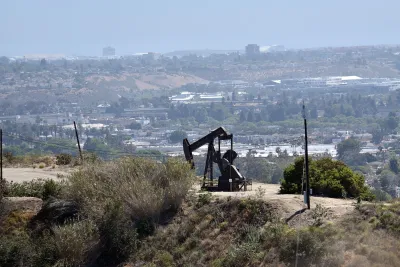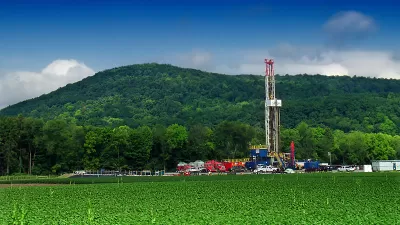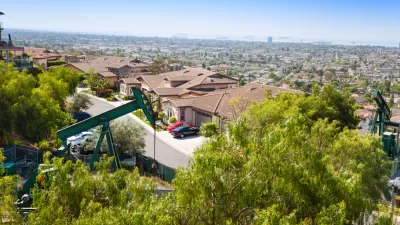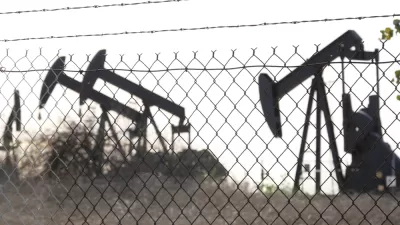Environmental advocates are using infrared technology to monitor and document methane leaks from neighborhood oil sites, filling regulatory gaps and pushing for stronger protections to safeguard community health and the climate.

In Wilmington, Los Angeles — a community with the city’s highest concentration of oil drilling — grassroots environmental justice groups are taking on the job of monitoring methane leaks, stepping in where regulatory oversight has fallen short. Armed with a Forward-Looking Infrared (FLIR) camera that visualizes methane emissions, field investigators from the Central California Environmental Justice Network (CCEJN) and partner organizations have been documenting leaks from idle oil wells and tanks near homes, parks, and schools. These leaks, while often small, pose serious health and climate risks, and the data collected is being submitted to regulators to press for action. This community-driven effort is filling a critical gap in official monitoring, which remains irregular and under-resourced.
Health researchers and advocates emphasize that even minor and consistent leaks contribute to long-term health hazards. Methane itself is not a direct toxin, but it indicates the presence of oil and gas operations and can be accompanied by more dangerous pollutants like benzene. Studies have linked proximity to oil wells with higher rates of asthma, cancer, and premature births. However, the burden of proof still falls on affected communities, as regulators lack the staffing and mechanisms to consistently inspect smaller drill sites, which are exempt from the same monitoring requirements as major refineries. Despite state and local policies passed to phase out neighborhood oil drilling, enforcement has been delayed by lawsuits from oil companies.
To work around legal and bureaucratic slowdowns, L.A. officials and activists are exploring new strategies to accelerate the shutdown of aging, low-producing oil wells. These include refusing to renew pipeline franchise agreements and leveraging new state legislation that affirms the city’s authority to regulate local drilling. Councilmember Katy Yaroslavsky stresses the urgency of protecting public health, especially in communities where oil infrastructure exists mere feet from homes and schools. As residents and advocates continue to monitor and document leaks, their grassroots vigilance is proving essential in pushing for meaningful policy change and holding polluters accountable.
FULL STORY: Meet the investigators hunting oil well pollution in LA neighborhoods

Planetizen Federal Action Tracker
A weekly monitor of how Trump’s orders and actions are impacting planners and planning in America.

Chicago’s Ghost Rails
Just beneath the surface of the modern city lie the remnants of its expansive early 20th-century streetcar system.

San Antonio and Austin are Fusing Into one Massive Megaregion
The region spanning the two central Texas cities is growing fast, posing challenges for local infrastructure and water supplies.

Since Zion's Shuttles Went Electric “The Smog is Gone”
Visitors to Zion National Park can enjoy the canyon via the nation’s first fully electric park shuttle system.

Trump Distributing DOT Safety Funds at 1/10 Rate of Biden
Funds for Safe Streets and other transportation safety and equity programs are being held up by administrative reviews and conflicts with the Trump administration’s priorities.

German Cities Subsidize Taxis for Women Amid Wave of Violence
Free or low-cost taxi rides can help women navigate cities more safely, but critics say the programs don't address the root causes of violence against women.
Urban Design for Planners 1: Software Tools
This six-course series explores essential urban design concepts using open source software and equips planners with the tools they need to participate fully in the urban design process.
Planning for Universal Design
Learn the tools for implementing Universal Design in planning regulations.
planning NEXT
Appalachian Highlands Housing Partners
Mpact (founded as Rail~Volution)
City of Camden Redevelopment Agency
City of Astoria
City of Portland
City of Laramie





























